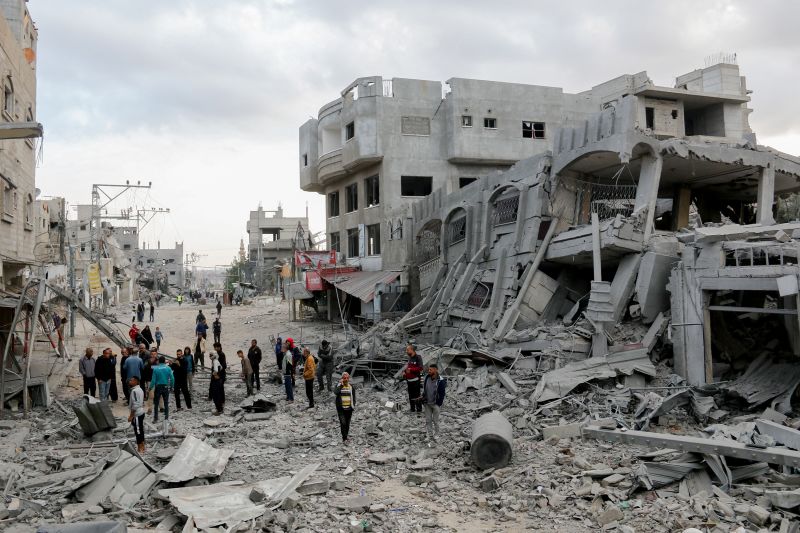
Qatar Hits Pause on Mediation Efforts Between Israel and Hamas, Insider Reports
Qatar’s Decision to Suspend Role in Israel-Hamas Talks Raises Questions Over Middle East Peace Process
Qatar’s recent decision to suspend its role in the ongoing negotiations between Israel and Hamas has elicited mixed reactions and raised significant questions regarding the future of the Middle East peace process. This move comes at a critical juncture when efforts to broker a ceasefire and address the underlying issues fueling the conflict have been stalled.
The Qatari government has been playing a key role in mediating talks between Israel and Hamas, leveraging its diplomatic influence and close ties with both parties to facilitate dialogue and de-escalate tensions. However, the sudden announcement of Qatar’s suspension from these negotiations has left many wondering about the implications and potential consequences for the region.
One of the primary concerns following Qatar’s decision is the impact it will have on the prospects for a lasting ceasefire and a comprehensive resolution to the longstanding Israeli-Palestinian conflict. With Qatar’s withdrawal from the negotiations, there is a real risk that the momentum achieved in recent talks could be lost, leading to a further escalation of violence and suffering for civilians on both sides.
Moreover, Qatar’s absence from the negotiating table raises questions about the role of regional actors in shaping the future of the Middle East peace process. As a prominent player in the region with significant influence and resources, Qatar’s withdrawal may leave a void that could be exploited by other actors seeking to advance their own agendas at the expense of stability and peace.
The decision by Qatar to suspend its role in the Israel-Hamas talks also highlights the delicate balance of power dynamics and competing interests that characterize the Middle East region. Qatar’s ties with Hamas have long been a point of contention among Gulf states and other regional powers, with some viewing Qatar’s support for the group as a threat to their own security and stability.
Furthermore, the timing of Qatar’s decision to step back from the negotiations underscores the complexity and challenges inherent in brokering peace in the Middle East. Against the backdrop of ongoing conflicts, shifting alliances, and deep-rooted grievances, the path to a sustainable and just resolution to the Israeli-Palestinian conflict remains fraught with obstacles and setbacks.
In conclusion, Qatar’s suspension of its role in the talks between Israel and Hamas serves as a stark reminder of the fragility of the peace process in the Middle East and the need for sustained international engagement and dialogue to achieve meaningful progress. As the region grapples with the fallout from Qatar’s decision, it is crucial for all stakeholders to redouble their efforts and commitment to finding a lasting solution that addresses the legitimate grievances and aspirations of all parties involved.
